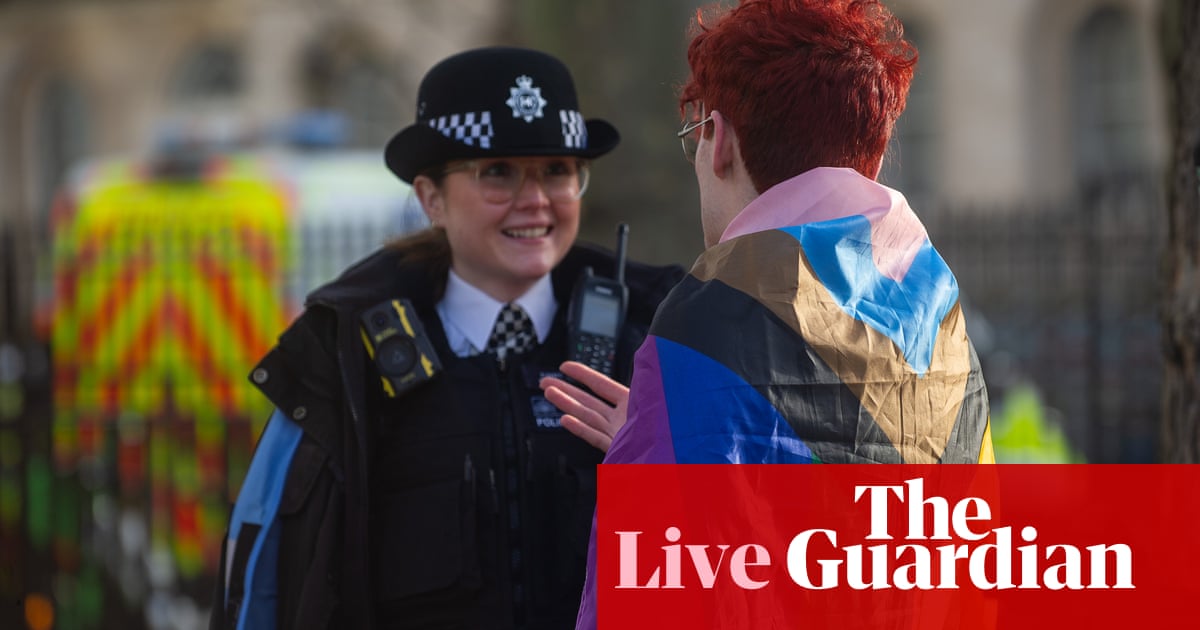
The final vote on the Scottish government’s long-awaited changes to simplify how someone can legally change gender will now take place on Thursday after two days of fraught, chaotic and sometimes emotional debate among MSPs.
Six years after it was proposed by the first minister, Nicola Sturgeon, following two public consultations and amid an increasingly toxic and polarised political discourse, the new law removes the need for a psychiatric diagnosis of gender dysphoria in order to obtain a gender recognition certificate (GRC) and extends the application process to 16- and 17-year-olds for the first time.
Scotland’s new self-identification system also reduces the time someone must have been permanently living in their acquired gender before they can apply – from two years to three months, or six months for people aged 16 and 17 – with a three-month reflection period during which an individual can change their mind.
Despite concerns among SNP backbenchers – which resulted in the biggest revolt for the party in 15 years in power in the earlier stages of the bill – and some Labour members, as well as opposition from the Tories, the SNP-Green majority in Holyrood, supported by Labour and the Liberal Democrats, means the bill is highly likely to pass its final vote on Thursday.
After Tuesday’s lengthy sitting ended after midnight only when the Holyrood chamber’s lights went out on automatic timer, weary MSPs returned for a second day of technical deliberations, angry protests and accusations of delaying tactics from the Scottish Tories.
After 8pm on Tuesday, it was announced that MSPs would continue their consideration of amendments, then have the debate and vote on that finalised bill on Thursday.
There was another lengthy suspension early in Wednesday’s proceedings while the presiding officer considered whether to accept a last-minute amendment from the Tory equalities spokesperson, Rachael Hamilton. She wanted MSPs to consider the recent ruling from the court of session that, for the purposes of the Equality Act, the definition of “woman” extends to transgender women with a GRC.
Although her amendment was not allowed, Shona Robison, the Scottish government minister leading on the bill, insisted that the ruling “made it absolutely clear that the Scottish parliament cannot modify the Equality Act”.
Robison also insisted that “trans rights are not in competition with women’s rights”, and that the proposals would be a “significant step forward in creating a more equal Scotland, where trans people feel valued, included and empowered”.
In a passionate intervention, Ash Regan – the former SNP minister who resigned in protest before the first stage of the bill – described the potential implications of the bill as “unprecedented” in expanding the group of people who can apply for a GRC, warning that – regardless of amendments – the bill “comprehensively undermines single-sex exemptions” and sent a message to women and girls that their safety “doesn’t matter”.
As the debate commenced, around 500 protesters, mainly women and many dressed in the purple, green and white suffrage colours adopted by opponents of the bill, gathered outside the parliament building.
Amid chants of “Shame”, there was particular anger expressed that a clutch of safeguarding amendments had been voted down on Tuesday night.
SNP MP Joanna Cherry, an outspoken critic of the plans, said the senior Scottish government ministers had said repeatedly “that this gives no new rights to trans people. What the bill does is give new rights to everyone so that anyone can self-identify as the opposite sex with minimal safeguarding.”
On Tuesday the Scottish government accepted a cross-party amendment from the SNP’s Gillian Martin and Scottish Conservative Jamie Greene that would mean anyone convicted of a sexual offence who wants to apply for a certificate will need to be fully risk-assessed.












